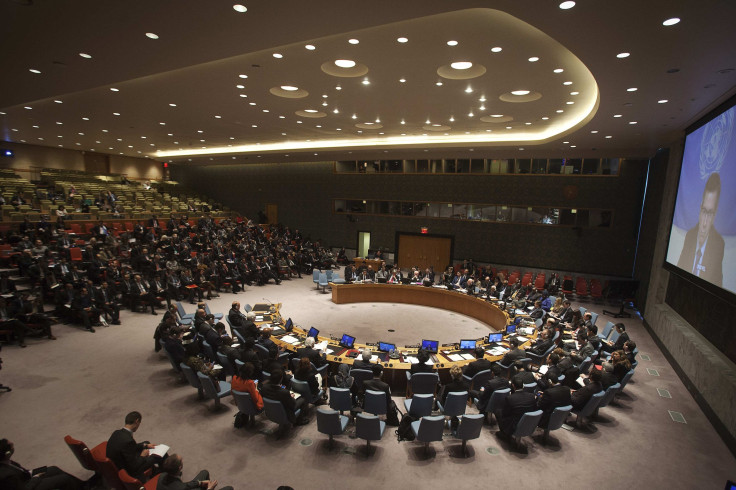Ukraine Crisis: Russia Says Calls For UN Peacekeepers Will 'Destroy' Minsk Accords

The Ukrainian government’s call on Thursday for United Nations peacekeepers to deploy in eastern Ukraine is a move to “destroy the Minsk accords,” said Vitaly Churkin, Russia’s Ambassador to the UN, according to BBC. Eastern separatists, allegedly backed by the Russian military, ignored a ceasefire agreed upon in Minsk last week in order to push for a strategic town between two rebel “capitals,” putting the accords in danger of disintegrating. “If one proposes new schemes right away, the question arises whether [the accords] will be respected,” Churkin said, according to BBC. Pro-Russian separatist leaders echoed Churkin’s sentiment and said a peacekeeping mission would violate the Minsk accords.
As a permanent member of the Security Council, Russia has veto power over peacekeeping deployments, which means that a deployment is unlikely without a shift in Russia’s stance on Ukraine. Permanent Security Council members have used their veto power to stop peacekeeping deployments in the past, even when the necessary nine out of 15 Security Council votes were in favor of a mission. The U.S. vetoed a peacekeeping mission to Palestine in 2001, even though the necessary nine votes were reached. Russia used its veto power in 2009 to end a 16-year UN observer mission in Georgia one year after it occupied two Georgian separatist territories in a five-day war and sent East-West relations to their lowest point before the crisis in Ukraine.
Churkin drafted and passed a Security Council resolution on Tuesday calling for an end to fighting in Ukraine, but U.S. Ambassador to the United Nations Samantha Power called that resolution “ironic” and accused Russia of escalating violence in the country behind the scenes.
Experts questioned the viability of the Minsk agreement soon after the conclusion of Friday's marathon negotiating session between Poroshenko, Russian President Vladimir Putin, German Chancellor Angela Merkel and French President Francois Hollande. Rebel leaders signed onto the agreement, which laid plans for increased autonomy for two self-declared separatist oblasts and a lasting ceasefire.
At the time of the signing of the agreement, rebels had not yet captured Debaltseve, a town in the east with a crucial railway hub that would allow rebels to quickly move equipment and soldiers around their territory. A ceasefire was to take effect two days later, but rebels made it clear it did not apply in Debaltseve.
© Copyright IBTimes 2024. All rights reserved.






















